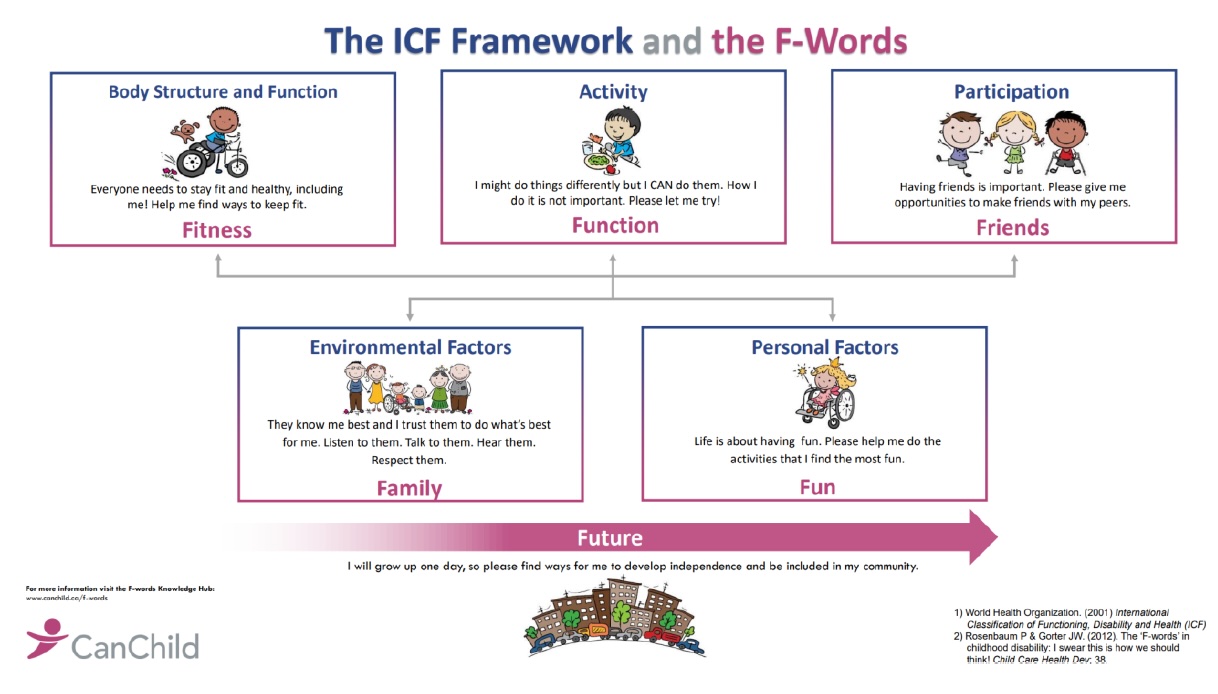Part 6: F-words for Child Development
The F-words for Child Development are a child and family friendly adaptation of the World Health Organization’s International Classification of Functioning, Health and Disability (ICF). The ICF was developed in 2001 and provides a framework that integrates the biomedical, social and environmental components of people’s health. In 2011, the CanChild research group embedded the words Function, Family, Fitness, Fun, Friends, and Future into the ICF framework to create what was originally called the ‘F-words for Childhood Disability’, and are now expanded as ‘The F-words for Child Development’ (see Figure 4 below). Since its introduction in 2011, the F-words have been adopted or are in the process of being adopted in many communities internationally and there have been over 30 translations of the F-words concepts.
The F-words promote strength-based, family-centred, and holistic concepts.
- A strength-based approach celebrates the ‘can do’ aspects of children’s lives rather than the ‘cannot’. Concerns and challenges are addressed, but children, youth, families, and service providers focus on positives and what is working well.
- A family-centred focus recognizes the needs and perspectives of families, who are the ‘essential environment’ of all children.
- A holistic approach to child development and wellbeing emphasizes the importance of looking at the full picture of a child and family. All areas of the ICF/F-words frameworks and the connections among them influence health and functioning.
- The F-words language and concepts can be applied across all stages in a child’s/youth’s development.
These concepts and the F-words can be applied across all services for children and youth, including programs within health, educational, recreational, and vocational services to promote child and youth development and family wellbeing. They can facilitate cross-program collaborations and transitions.
Further information about the F-words, including a link to the original F-words paper, can be accessed at the CanChild F-words Knowledge Hub: https://www.canchild.ca/en/research-in-practice/f-words-in-childhood-disability.
